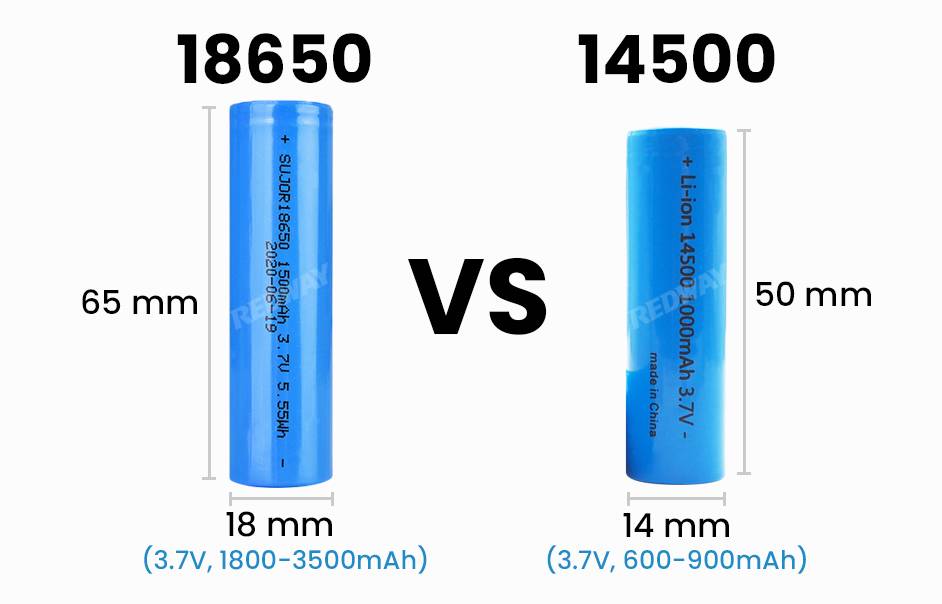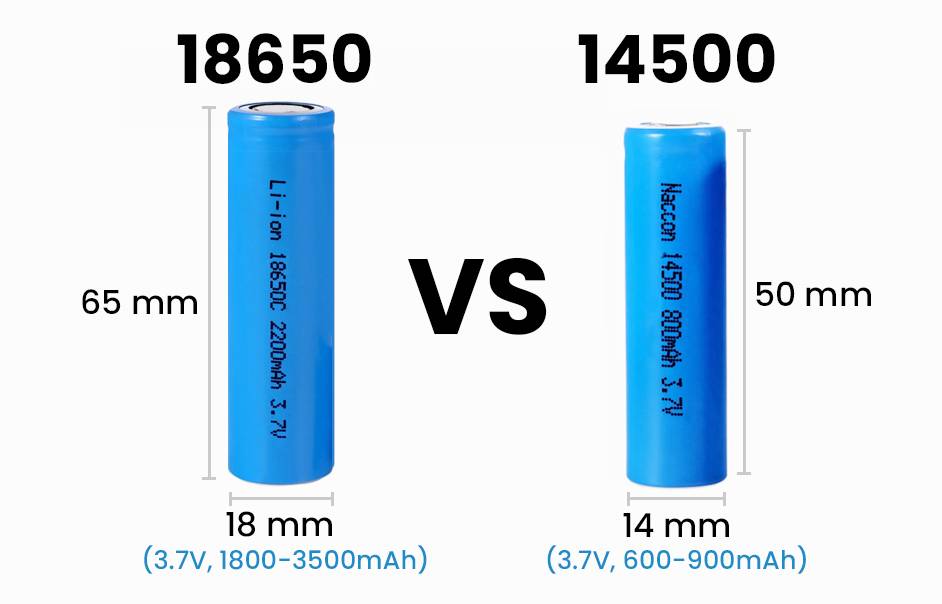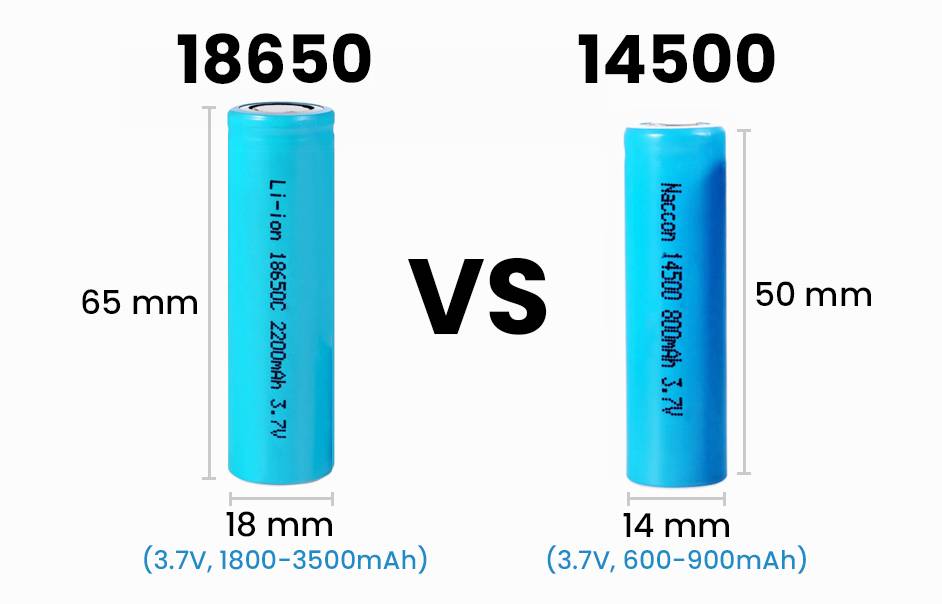Comparing 18650 and 14500 batteries helps users understand their differences in size, capacity, and suitability for various applications. This comparison aids in selecting the most appropriate battery type based on specific device requirements, ensuring optimal performance and compatibility while avoiding potential issues like size mismatch or inadequate power supply.
18650 batteries are larger with higher energy capacity (1000mAh to 3500mAh) and commonly used in larger devices. In contrast, 14500 batteries are smaller, with lower capacity (600mAh to 1200mAh), suited for compact gadgets. Both have a nominal voltage of 3.7 volts and are rechargeable lithium-ion batteries.
What is 18650 battery?
The 18650 battery (1000mAh to 3500mAh), a rechargeable lithium-ion type, is extensively employed in electronic devices, known for its dimensions of 18mm in diameter and 65mm in length. Found in laptops, flashlights, electric vehicles, and various electronics, these batteries boast high energy density, ensuring prolonged, efficient power delivery. Recognized for durability and a lengthy lifespan, many 18650 batteries are rechargeable, promoting cost savings and environmental sustainability by encouraging reuse.
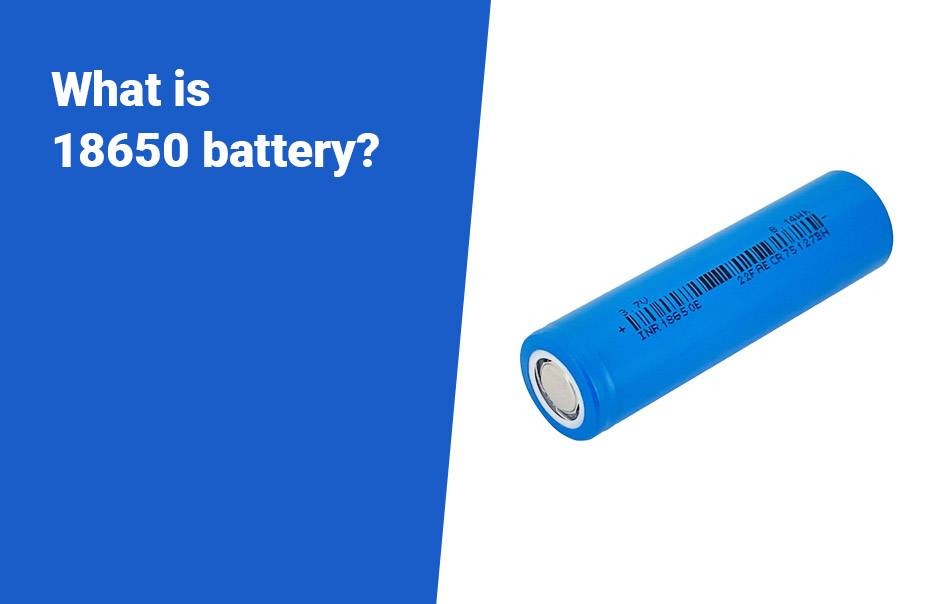
What is 14500 battery?
The 14500 battery (600mAh to 1200mAh), a rechargeable lithium-ion variant, closely resembles a standard AA battery in size. With dimensions of 14mm in diameter and 50mm in length, it finds common use in smaller electronic devices like flashlights and digital cameras.
Exhibiting high energy density and a prolonged lifespan, these batteries contribute to environmental sustainability as they are rechargeable and can be utilized multiple times. Despite their compact size, 14500 batteries usually have a lower capacity and discharge rate compared to larger lithium-ion counterparts like the 18650 battery.
18650 vs 14500 battery comparison in details
In the realm of lithium-ion rechargeable batteries, the 18650 and 14500 are commonly used in various electronic devices. Let’s compare them based on key dimensions:
- Size: The 18650 is larger, measuring 18mm in diameter and 65mm in length, while the 14500 is smaller at 14mm in diameter and 50mm in length.
- Capacity: The 18650, being larger, typically boasts a higher capacity, such as 1000mAh to 3500mAh, compared to the 14500 with a typical capacity of 600 – 1200mAh.
- Voltage and Applications: Both batteries share a nominal voltage of 3.7 volts, but the 18650 is preferred in applications requiring higher capacity and longer run times, like laptops and electric vehicles. The 14500 suits smaller devices like cameras and remote controls.
In summary, the 18650 offers greater size, capacity, and current delivery, while the 14500 is compact and suitable for less power-demanding applications.
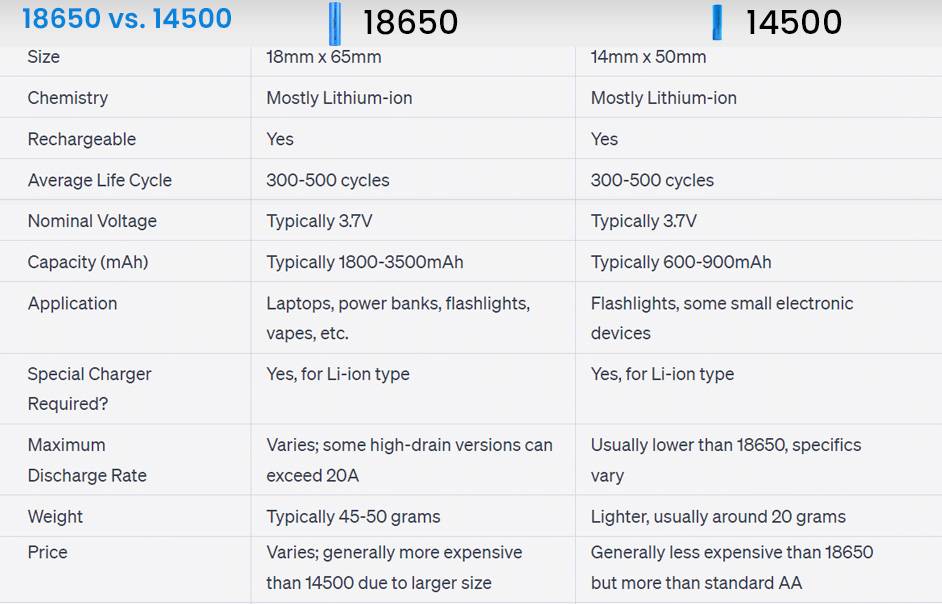
What should I check before buying a 14500 or 18650 battery?
Before purchasing a 14500 or 18650 battery, it’s crucial to consider key factors for the right choice. Here’s a concise guide:
- Device Compatibility: Ensure your device is compatible with either the 14500 or 18650, as some devices may only support one type.
- Capacity and Voltage: Assess your power needs. The 18650 typically offers higher capacity and voltage, suitable for devices requiring more power and longer run times.
- Discharge Rate: Consider the discharge rate; the 18650 often has a higher discharge rate, ideal if you need quick power delivery.
- Brand and Quality: Opt for reputable brands for safe and reliable performance.
- Price: Compare prices, balancing your budget with the long-term benefits of high-quality, durable batteries.
In conclusion, thorough consideration of these factors ensures you choose the right battery for optimal performance and longevity.
How do 18650 batteries and 14500 batteries work?
Both 18650 and 14500 batteries are rechargeable lithium-ion batteries with similar working principles. Here’s a simplified breakdown:
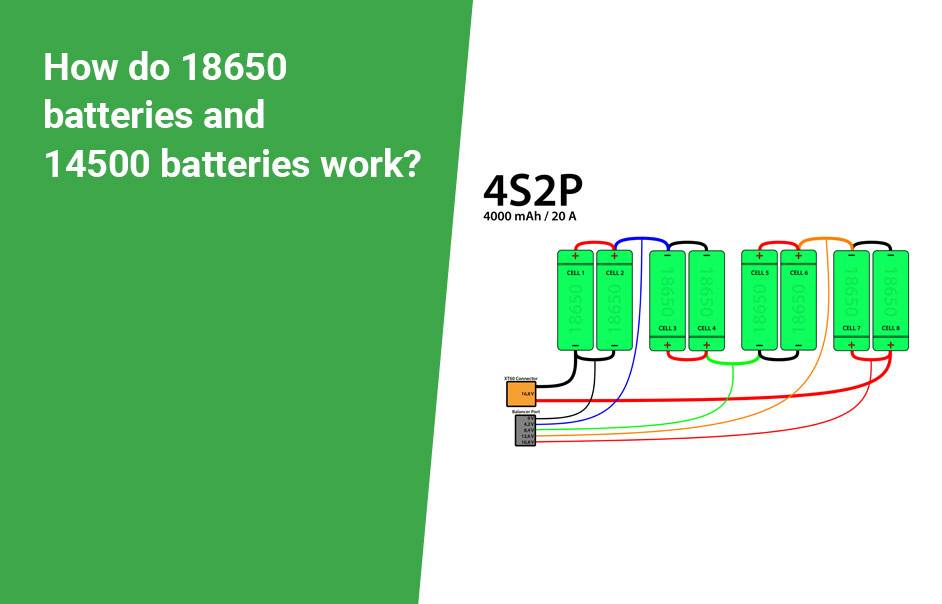
- Lithium-ion Cells: Comprising cathode, anode, and electrolyte, these cells are the building blocks of both batteries.
- Charging: During charging, ions move from cathode to anode through the electrolyte, storing energy in the battery.
- Discharging: When used, ions move back, creating an electric current to power devices.
- Protection Circuit: Both batteries have built-in protection circuits to ensure safe operation by preventing overcharging, over-discharging, and short circuits.
- Cell Chemistry: The battery’s specific characteristics, like capacity and voltage, are determined by the cell chemistry.
In summary, while 18650 and 14500 batteries share basic functionality, their distinct size, capacity, and characteristics make them suitable for different devices and applications.
Can I charge 14500 battery with AA charger?
NO, Charging a 14500 lithium-ion battery with an AA battery charger is generally not advisable due to differences in voltage and charging requirements. Despite similar dimensions, an AA battery charger outputs 1.5 volts, significantly lower than the 3.7 volts of a 14500 Li-Ion battery.
Attempting to charge with an incompatible charger, like an AA charger, may lead to overcharging, posing risks of damage and safety hazards. To ensure safe and efficient charging, it is crucial to use a charger specifically designed for 14500 batteries, promoting longevity and optimal performance.
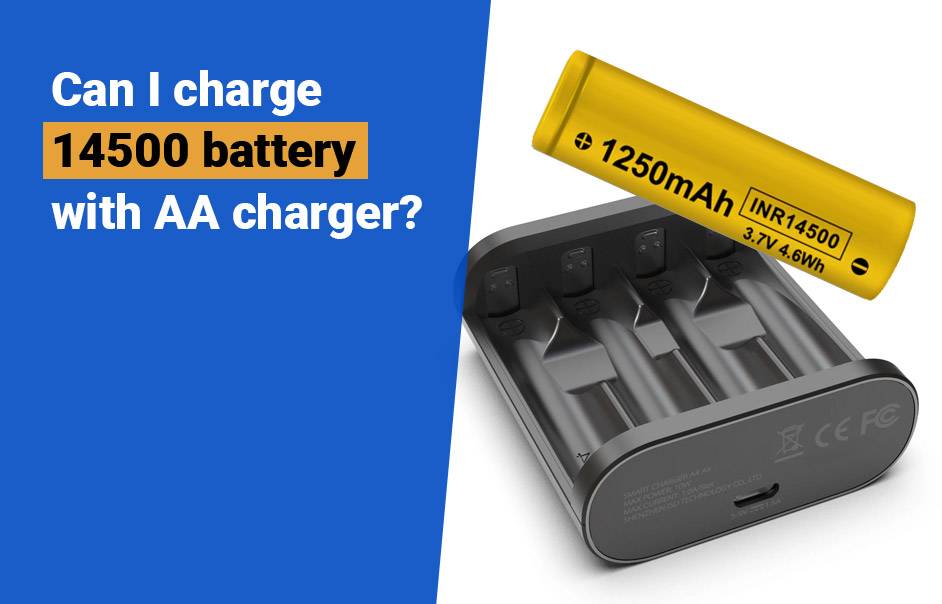
Where to Source Wholesale 18650 or 14500 battery Batteries?
Redway’s engineering team has successfully developed customized 18650 and 14500 lithium batteries. If you are interested in tailored lithium batteries to meet your specific needs, please reach out to us for a prompt and personalized quote.
Conclusion
Both 18650 and 14500 batteries come with distinct advantages and drawbacks. The 18650 battery boasts a lengthier lifespan and can accommodate higher current draws, making it suitable for certain applications. Conversely, the 14500 battery is more compact, lightweight, and charges faster. The choice between the two hinges on your specific requirements and preferences for powering electronic devices.

